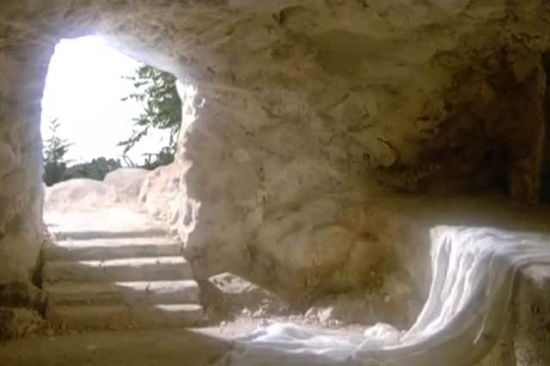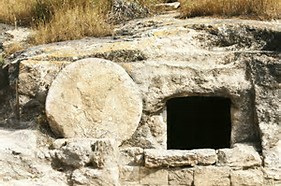Acts 5:12-16; Ps. 118:2-4, 13-15, 22-24; Rev. 1:911a, 12-13, 17-19; Jn. 20:19-31
Divine Mercy Sunday proclaims the Lord’s “mercy endures forever” open to all but received by those who share in the “distress, the kingdom, and the endurance we have in Jesus”. We all like to receive gifts but if the gift comes with an expectation, then we become hesitant to receive the gift and fail to recognize the value of the gift. We can understand why even something as important as the gift of mercy is not sought after because the expectation is that something in us is expected to change and we resist change of self more than perhaps anything else.
The expectation of the Lord is that we share in the “distress, the kingdom, the endurance we have in Jesus”. This “distress…kingdom, and endurance” is the call to come and follow the path of perfection through the love of God and neighbor, and the sacrifice of mercy to forgive and be forgiven and to persevere in our faith, hope and love. Simply stated the gift of mercy is by sharing in the sacrifice of the Lord to live and die for each other. It is a covenant of mercy to be merciful for the mercy we have received by passing it on in a world known more for its “dog eat dog” mentality than for the lion to lay next to the lamb.
Do we share in this struggle for the sake of the kingdom or have we become habitual in religion showing up on Sundays and special celebrations and lost throughout the week in ourselves? Before the Lord we proclaim we believe but outside of the Mass our lives are lived as St. Tomas doubting his presence is with us. St. Tomas hesitancy to believe lives on in us when we fail to recognize the hand of God in our lives, when faith does not overcome the test of distress, and when we trust ourselves more than trust in God.
The reflection of how we live our lives outside of Mass speaks louder of how we keep our baptismal promises. It is not a heavy yoke but a joyful sacrifice of love for God. The struggle for the kingdom is because evil remains in this world seeking to ruin our souls, tempting us to deny what we believe in practice and persecuting the faithful for rejecting the teaching norms of the world. The gift of divine mercy is also the power of endurance that we will not be overcome by the world but overcome the world with mercy.
We hear, see, and experience a world filled with evil, distress, and fear of persecution and the Lord is calling us to his mercy through repentance of our sins and acts of mercy. Just this week there is an intent to remove “conscience objection on religious grounds” from medical/health practice intended to force health professionals to perform legal medical procedures such as abortion, euthanasia, body mutilation for gender change or risk losing their right to their practice of medicine and/or health care. Mercy is not about “going along to get along” or “not rock the boat” as is commonly described. Mercy is about giving testimony to the truth of the gospel by giving the warning of Jonah to Nineveh to repent while there is still time and proclaiming the mercy of God when we turn to him.
Mercy is not for the weak in faith but for the courage to stand for what we believe for the good of the other even when we know we will be rejected as Jesus was rejected. This is sharing in the distress for the kingdom with endurance. The power to endure comes from the word of Jesus “Peace be with you.” It is his peace that lives in us that can look at the world not in fear but with the love of Christ is us.
The resurrection of Jesus brings us God’s reconciliation of love. Forgiveness takes on the dimension of mercy. In forgiveness there is the cancelation of debt that “you owe me” but in mercy there is a reconciliation of love. When a child does wrong and is corrected there is a need for justice often equal to the wrong done such as “because you hit your little sister you have to say you’re sorry (seek forgiveness) and be nice to her (justice) and give her a hug and tell her you love her (mercy)”. Mercy is beyond forgiveness and restorative justice it is reconciliation of love. Are we ready to love our enemies? We pray “Forgive us our trespasses as we forgive”. Divine mercy is recalling the Lord’s call to forgive is to reconcile with love.
The resurrection of Jesus brings about the great commissioning of now his apostles “Peace be with you. As the Father has sent me, so I send you.” The Father sent Jesus to bring his gift of mercy through forgiveness of sins and Jesus now commissions the apostles to “Receive the Holy Spirit. Whose sins you forgive are forgiven them, and whose sins you retain are retained.” This gift of mercy comes to us through the sacramental act of Reconciliation in our confession of sin to a priest to be absolved by the mercy of God. Think of the penance a priest gives in the confessional and consider the alternative of restorative justice in purgatory, which would you desire most? Fear not the confessional but believe and be healed. The mercy of God comes to us through the authority given to the priesthood to forgive sins that we may hear the words of absolution and believe.
John was told by Jesus “Do not be afraid” and Jesus told Tomas “…do not be unbelieving, but believe”. Are we a believing people unafraid to come to Jesus for mercy or simply following a religious cultural practice out of habit? This Jesus who was once crucified and died is now “alive forever and ever…and hold(s) the keys to death and the netherworld.” Let us believe in his divine mercy and be healed of our sins in confession.
Let us not be afraid of what we have seen and is happening in this world but be ready for “what will happen afterwards”. Jesus is coming for us and he makes all things new.





Recent Comments